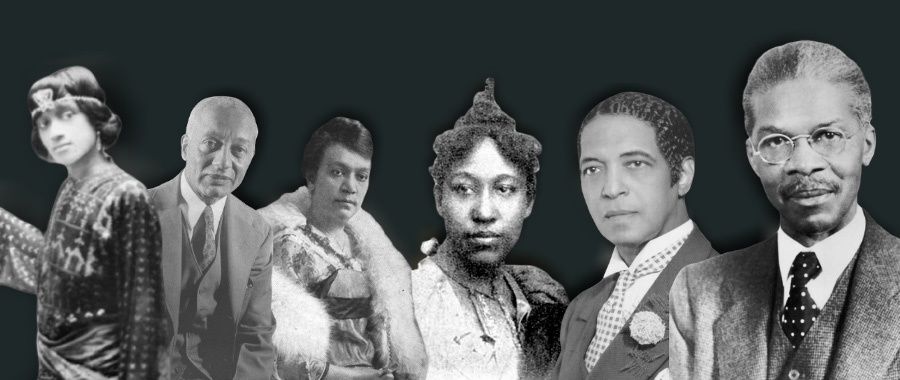The Bahá’í Faith, a religious movement that emerged in the mid-19th century, has often been recognized for its progressive stances on unity and equality. However, the particular historical context of African American Bahá’ís during the lifetime of ‘Abdu’l-Bahá, the son of the founder of the Faith, offers a unique lens through which one can explore the intersection of race, spirituality, and social activism. This era was marked by a solemn commitment to breaking down racial barriers, and examining this context invites scholars and laypeople alike to delve into deeper undercurrents of motivation, agency, and historical significance.
‘Abdu’l-Bahá, who led the Bahá’í community following the passing of his father, Bahá’u’lláh, became an influential figure in advocating for equality. His travels to the United States between 1912 and 1916 were particularly transformative for African Americans who were grappling with the systemic oppression that pervaded their daily lives. The necessity of understanding this intersection cannot be overstated; the Bahá’í teachings espouse principles that inherently challenge racial discrimination.
One of the most salient observations about African American Bahá’ís during this time is their emergence as not merely followers, but as active participants in the global Bahá’í community. The teachings of the Faith, which emphasize the oneness of humanity, resonated deeply within the African American experience, providing a spiritual foundation that empowered individuals to fight against the pervasive racism of their environment. The Faith’s acknowledgement of the essential worth of every person reinforces an understanding that transcends cultural and racial lines.
A pivotal figure during this era was Louis Gregory, one of the first prominent African American Bahá’ís. His commitment to the Faith and its principles exemplifies the transformative potential of spirituality when it intersects with social justice. Gregory’s tireless efforts in promoting racial unity within the Bahá’í community are particularly noteworthy. He viewed the Faith as a vehicle for dismantling the injustices prevalent in American society. This perspective demonstrates a profound understanding that spirituality should not exist in isolation but must actively engage with societal issues.
The allure of the Bahá’í teachings for African Americans in the early 20th century was multilayered. At its core, it provided a sanctuary in which the ideals of equality were not merely articulated but actively championed. While mainstream society implemented segregation, the Bahá’í community represented a radical alternative, where all individuals were welcomed regardless of race. This was a stark contrast to the prevailing attitudes of exclusion and division, hence explaining the burgeoning interest among African Americans in joining the Faith.
Furthermore, the role of women in the Bahá’í community during this period offered an additional layer of complexity. With the elevation of women’s status in the teachings of the Faith, African American women found a platform for both spiritual expression and social activism, articulating their unique challenges while seeking to uplift others. Figures such as Sarah Farmer embodied this dynamic; they leveraged their positions in the Bahá’í community to confront the intersecting oppressions of race and gender. Such narratives are essential for illustrating how the Faith operated not only as a source of spiritual solace but also as a catalyst for activism.
The convening of the Chicago University conference in 1912, hosted by ‘Abdu’l-Bahá, marks a significant milestone. Here, diverse groups mingled in discussion, demonstrating a microcosm of the Bahá’í vision of inclusivity. The environment fostered by ‘Abdu’l-Bahá encouraged African American participants to articulate their challenges while highlighting the shared human experience. This engagement between races was undoubtedly revolutionary, allowing African American Bahá’ís to emerge from the shadows of societal marginalization into a space where their voices could be heard and valued.
In addition to the personal journeys of African American Bahá’ís, the broader implications of their involvement in the Faith deserve attention. Their experiences can be seen as emblematic of a larger cultural and spiritual awakening—an awakening that recognized the futility of divisions created by race. The historical context serves to underline a poignant observation: the appeal of Bahá’í teachings during this era transcended strict religious considerations. It entailed a quest for an identity that could embrace both spirituality and social responsibility simultaneously.
Moreover, the theological foundations of the Bahá’í Faith provided a framework for understanding racial unity. The principle of progressive revelation underscored the belief that truth is not static but evolves with humanity’s needs. This perspective fostered a sense of hope, encouraging individuals to envision a future where racial harmony could be realized. In this light, African American Bahá’ís became both beholders and purveyors of a transformative message, reaffirming their dignity while simultaneously advocating for a broader societal change.
In conclusion, African American Bahá’ís during the lifetime of ‘Abdu’l-Bahá emerged as pivotal actors at the intersection of race and spirituality. Their experiences underscore the profound resonance of Bahá’í teachings amidst a backdrop of racial injustice and oppression. The Faith not only provided solace but also emboldened individuals to confront societal norms, thereby enriching the broader Bahá’í narrative with stories of resilience, unity, and social purpose. Engaging with these histories today illuminates not only the past but also encourages a continual commitment to the principles that advocate for racial harmony and justice. In recognizing these contributions, one can better appreciate the dynamic interplay between faith, identity, and activism—a confluence that remains relevant in contemporary discussions on race and spirituality.
